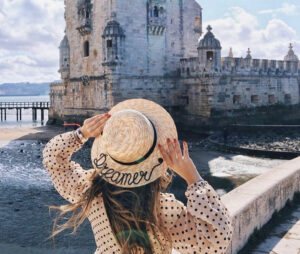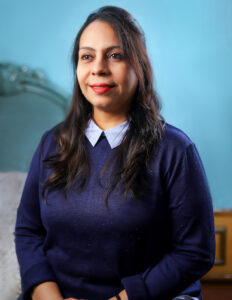Sustainability has rapidly become one of fashion’s favourite buzzwords. In an age where the interdependencies of environmental catastrophe and social impacts are becoming increasingly clear, fashion has become an ideal vehicle to explore sustainability – a way to intersect our society’s love for visual culture with the crises of our generation.
My journey into learning about sustainable fashion began almost eight years ago during the 2013 Rana Plaza factory collapse in Bangladesh. Rana Plaza was labelled as one of the biggest industrial disasters in human history – an eight-storey factory collapse that killed more than 1,132 workers and injured over 2,500. The collapse was not an unpredictable disaster. Structural cracks were identified the day before the building’s collapse. However, due to pressure from upper management, workers were called in to work the next day to finish orders for big international brands that are now a household name.
As a customer, I decided that I would be very conscious of my consumption decisions; they would be based on brand names that valued every single person involved in their supply chain. Thus began my journey and here I am today, representing and building my brand consciously and incorporating sustainability in the choices that I and my team have been making to build our products.
I wanted to create a brand that was an extension of my hard work, drive for high quality, and dedication to support women. Thus Myaraa was born!
I believe fashion shouldn’t be at the cost of our planet. The year is 2021; a year when people aren’t simply talking about issues concerning climate change and other global issues, but are also taking steps to correct those issues and live more consciously. When you love the world you’re living in, you naturally want to do as much as you can to prevent the state it is in from worsening.
Myaraa products are born in India and delivered worldwide. Our natural straw hat gives us the opportunity to reset and return to our roots, as we use only natural and ecofriendly materials to make it.
I drew inspiration from my own backyard in Madhya Pradesh, where I grew up in Harda. There are many wheat farms in the area and after the grains have been harvested, the local artisans (or karigars) use the remaining wheatgrass to create baskets, simple tools and handicraft items. When I was travelling to the US to visit my children, I saw many people wearing hats made of wheatgrass, which were moulded and styled in different shapes and sizes.
Inspired by the natural grass-fibre baskets and tools from my childhood home in Madhya  Pradesh, I started designing these accessories with the same ecofriendly materials. Today, Myaraa’s hats are designed in a combination of Indo-Western styles and personalised with your name, message, or occasion.
Pradesh, I started designing these accessories with the same ecofriendly materials. Today, Myaraa’s hats are designed in a combination of Indo-Western styles and personalised with your name, message, or occasion.
We work with an all-women team here. Our production empowers rural women whose families abandoned them for marrying outside their community or being a widow. The company makes employment opportunities more accessible in rural India by making sure that when you buy a sunny hat it comes bundled with the social and financial empowerment of a woman. We recently started contributing 25% of our profits back in the system by donating the amount to local NGOs that support women empowerment, or by sponsoring women who are interested in going to local institutions to learn and acquire various artisanal skills, such as how to sew and stitch, so that they can be empowered to start a small business and become independent. They are always welcome to join our team at Myaraa as well.
Developing an eco-conscious organisation begins at the grassroots level with our women team, as it is crucial for our team to believe in our vision and practise environment-friendly actions in the workshop in order for the mission of sustainability to signal out accordingly. From the kitchen area to our workshop space, we have reminders on responsible waste disposal through clear signage on designated waste stations to help our team distinguish between what items belong in recycling, compost, and trash bin.
We promote conservation of energy by asking our team to turn off the lights and switch off electronic equipment around the workshop during off-hours. We opt to do business with green-friendly brands and companies. We conduct research into vendors of interest to learn more about their sustainability efforts and see if they align with our own vision and values regarding environmental impact.
Plants occupy a prominent place in our workshop and office areas. Placing plants around the office helps in beautifying workspaces and uplifting the overall atmosphere, and reduces stress and anxiety for the team. Also, indoor greenery can boost oxygen levels and remove harmful pollutants such as carbon dioxide.
We are also conscious about choosing to not do certain things – for example, not using plastic of any kind in packaging or shipping our products. We use 100% recycled paper to manufacture our mailer box, paper inserts and packaging tapes.
Promoting and practising sustainability at the workplace through a mindful and healthy environment allows the team to think of the bigger picture, and encourages environmentally conscious practices among the team, suppliers and customers – it helps make them feel healthier, more satisfied with your brand, and more driven. Above all, the benefits of positive environmental impact through our practices will stay for generations to come.
 Namrata Lodha started Myaraa in 2019 at the age of 52, in a drive to make sustainable accessories fun again. This entrepreneurship journey started in a living room with the germ of an idea – to (re)introduce the concept of hats as an accessory but with a unique design element in it. Over time, Myaraa grew into a social media community with customers in more than 50 countries.
Namrata Lodha started Myaraa in 2019 at the age of 52, in a drive to make sustainable accessories fun again. This entrepreneurship journey started in a living room with the germ of an idea – to (re)introduce the concept of hats as an accessory but with a unique design element in it. Over time, Myaraa grew into a social media community with customers in more than 50 countries.
Here is where you can find more details:
https://www.myaraa.com
https://www.instagram.com/myaraaindia/
